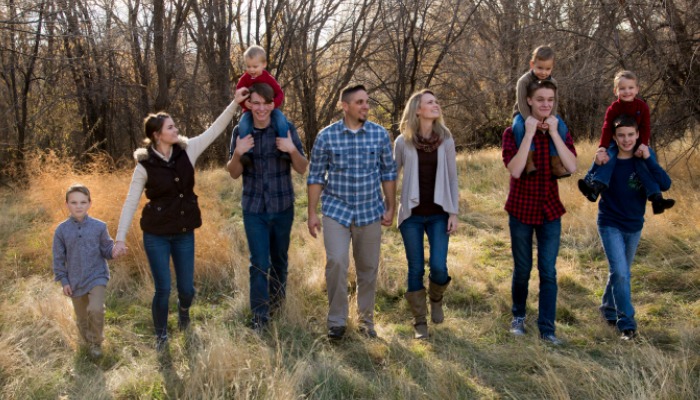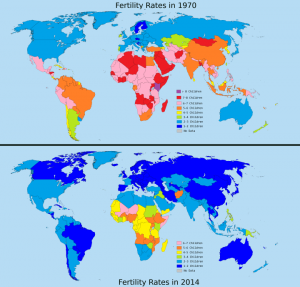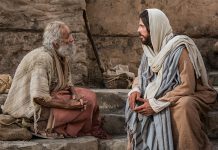
“Zero population is the answer, my friend!” proclaim Jimmy’s friends in the classic Mormon musical Saturday’s Warrior. Much of the world agrees (reflected by the map showing decreasing birth rates worldwide).

Mormon birth rates, especially in America, however, still tend to be higher than the rest of the population.
Although this focus on having big families might simply be due to a desire to obey the counsel given by church leaders (such as the Proclamation on the Family), do the resulting blessings go beyond just treasures laid up in heaven?
FROM “WOMEN’S LIB” TO LONELINESS

Today’s anti-family trend is rooted in the “cultural revolution” of the mid-twentieth century. This movement was ultimately designed by Satan to undermine traditional families, but cleverly sold to society under the guise of promoting women’s rights. Roe vs. Wade, ERA, and the “Mary Tyler Moore” single working woman phenomenon began the trend toward moving traditional families to the periphery of society. Mormon leaders decried this trend, as witnessed in this 1971 Ensign article by then Elder Thomas S. Monson:
“In another magazine [I read] there was a report dealing with “The Motherhood Myth.” This article debunked the idea that there is anything particularly fulfilling and satisfying about being a mother. It quoted one psychiatrist who suggested that people should move from planned parenthood to planned unparenthood and that it would be more loving to children not to have them. The author of the article, a senior editor of the magazine, concluded: “If God were still speaking to us in a voice we could hear, even He would probably say, ‘Be fruitful. Don’t multiply.’
Such idiotic and blatantly false philosophy must not be entertained or believed. For God has spoken. Indeed, he has spoken in a voice clearly understood by those who have ears to hear and hearts that know and feel.”
(Ensign, January 1971)
While Mormon leaders were decrying the shift from family to self, it has taken society (once keen to jump on the bandwagon) a while to see the sociological consequences of this “unparenthood” as referred to by President Monson in the above quote.
Dr. Lunstad observes:
Being connected to others socially is widely considered a fundamental human need—crucial to both well-being and survival. Extreme examples show infants in custodial care who lack human contact fail to thrive and often die, and indeed, social isolation or solitary confinement has been used as a form of punishment. Yet an increasing portion of the population now experiences isolation regularly.

Compiling data from a variety of sources, Lunstad and her colleagues discovered that people with strong social relationships were 50 percent more likely to survive longer than those who were isolated. Naturally, families provide that type of relationship.
In another article which focuses on the modern-day dilemma of loneliness, writer Michael Cook asserts, “Remarkably, most of the academic studies and media surveys ignore the fundamental question: what kind of society creates a vulnerability to loneliness? The answer seems obvious: a society where families are small and fractured. When the elderly have several children to support them and do not bear the burden of shattered relationships, loneliness will surely be less of a problem.”

Having big families may require more money, more time, a bigger car, less “me” time for parents, and more sacrifice on the whole…but they also provide a bigger network of caretakers as we get older (not to mention lots of love, cute grandkids, and a REALLY BIG brag book).
So it looks like God (and His inspired leaders) were ahead of the game on this one. Seems to be a trend for them, doesn’t it?





